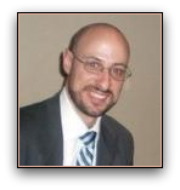
Dr. Dante Piccioni
Cognitive Neuroscientist
For one cognitive neuroscientist working today and specializing in sleep, he doesn’t feel that what he does could actually be called “work.”
“When you find a job you love, you never work again,” says Dante Picchioni, a cognitive neuroscientist with the Walter Reed Army Institute of Research in Silver Spring, Md.
Sleep Fascination
As a freshman at the State University of New York at Albany, he remembers being fascinated with sleep, or more specifically the fact that he had a very detailed recall of his dreams. In his introductory psychology class, he discovered that a psychology major would let him pursue this fascination – and actually make a living doing it.
He remembers telling a friend while taking the class that he wanted to be a sleep researcher. But it wouldn’t be until graduate school that he discovered the fit between cognitive neuroscience, psychology, and sleep.
Cognitive neuroscientists focus on the intersection between the brain and the mind. Studying the brain’s anatomy, physiology, and biochemical processes comprise the “neuroscientific” aspects of this career. Investigating the mind, its cognitive processes and states of consciousness, including sleep, require knowing the psychological principles of cognition and behavior.
Clinician vs. Researcher
States of consciousness are what fascinate Picchioni. While an undergraduate psychology major, he wasn’t sure if he wanted to be a clinician or focus on research. Almost all undergraduates think that they want a clinical degree, not really understanding that this degree does not prepare individuals for research-centered professions, Picchioni said.
“People are afraid to be scientists because they think it’s too obscure, that it involves only numbers. They think that they’ll never work with people if they go into science.”
But in fact Picchioni’s job does provide him with the opportunity to interact with people. Since cognitive neuroscientists study the human brain, they have to work with humans, Picchioni said.
In his research, Picchioni uses neuroimaging devices such as functional magnetic resonance imaging (fMRI) and electroencephalograph (EEG) (see Neuroimaging) to study the human brain. As in other areas of cognitive neuroscience research, Picchioni’s research focuses on normal brain functioning in relation to sleep as well as those with sleep disorders.
He studies the function of sleep, why people need sleep, what’s going on in the brain that makes sleep important, and brain activity during sleep. But the variety of tasks makes his job especially stimulating. On any given day, he will be talking with someone at a facility to recruit individuals for a brain study, analyzing brain images, or writing computer code to aide in his sleep-brain analyses.
Picchioni’s Research Interests Include:
- Sleep-dependent memory
- Narcolepsy
- Stress and sleep
- Dreaming and nightmares
- Sleep deprivation
From Generalist to Specialist
Talking to Picchioni, one can hear the excitement in his voice when discussing his decision to pursue research over clinical practice. It’s absolutely what he wants to be doing, and would not be happy treating patients clinically.
Yet it took him a while to come to terms with that decision. He entered a terminal master’s program in experimental psychology at San Jose State University. A terminal degree simply means that if an individual decides to go on for a Ph.D. he or she either needs to reapply to enter the Ph.D. program, or in the case of Picchioni, go to a school that offers a Ph.D. program. After receiving his master’s degree, he was accepted into the experimental psychology program at the University of Southern Mississippi.
While receiving a “broad” degree such as experimental psychology isn’t the usual path for someone considering a career in cognitive neuroscience, Picchioni was able to tailor and focus his classes and research on neuroscience topics. For example, he wrote his Ph.D. dissertation on the epidemiology (causes) of narcolepsy.
When it came time for him to do his post-doctorate study, he took a position where he learned the intricacies of working with and employing the fMRI for conducting neuroscientific research. Five years after receiving his Ph.D., he now has enough training to be employed as a cognitive neuroscientist.
For those who are passionate about a career in cognitive neuroscience, in understanding the brain-mind relationship, there are specific graduate psychology degrees in cognitive neuroscience. The route one takes to achieving his or her career goals depends on the individual and the university or college offering the degree.
An excellent place to start is with an undergraduate or master’s degree in psychology. Tailor classes, if possible, toward the neurosciences.
Employment options for those with a Ph.D. in cognitive neuroscience or a cognitive neuropsychology specialty include conducting research for a university, public or private institutes, or working for a pharmaceutical company.
If you are passionate about pursuing study in cognitive neuroscience, request information from psychology schools to understand how you can gain the desired educational qualifications.